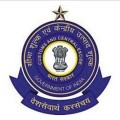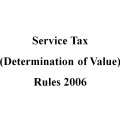Small Service Providers Exemption is available to Co-owners
Hon’ble CESTAT Mumbai vide its ORDER NO A/2587/15/STB, APPEAL No. ST/88801/13Mum, dated August 04, 2015 in case of CCE, Nasik vs Deoram Vishrambhai Patel upheld the O-I-A passed Commissioner of Central Excise & Customs (Appeals), Nasik by holding as under:
“9. It can be seen from the above reproduced findings of the first appellate authority, the conclusion arrived at is very correct, as co-owners of the property cannot be considered as liable for a service tax jointly or severely (sic) as Revenue has took (sic) identify the service provider and the service recipient for imposing service tax liability, which in this case, we find our individual (sic) . The conclusion arrived at by the first appellate authority is correct and he has confirmed the demand raised on the respondents by extending the benefit of Notification no. 6/2005ST dated 01/03/2005. We do not find any reason to interfere in such a detailed order.”
Accordingly to this decision the renting of immovable Property by the four appellants in this case is in their individual capacity and, therefore, their tax liability would be determined by considering their individual rental receipts and not collective one. Accordingly separate basic exemption of 10 lacs under Notification no. 6/2005ST dated 01/03/2005 is available to each applicant.
Following are the cases where CESTAT have given full waiver of pre-deposits by holding that prime facie co-owner/joint owner to a property are eligible for separate threshold exemption under Notification no. 6/2005ST dated 01/03/2005:
- Smt. Bhavna R Shah, Shri N G Shah Vs CST [CESTAT-AHM]
- Mrs Vamini Nitin kumar Shah Vs CST [CESTAT-AHM]
- Shri Dilip Parikh Vs CST [CESTAT-AHM]
- Shri Pankajbhai Champaklal Parekh And Ors Vs CST, [CESTAT-AHM]
- Smt Chuniben S Jadia & Others Vs Comm. of Service Tax, Ahmedabad [CESTAT-AHM]
- Smt K D Chaudhary and ors CST [CESTAT-AHM]
- Shri Dinesh K Patwa Vs CST, Ahmedabad [CESTAT-AHM]
Decision of CCE, Nasik vs Deoram Vishrambhai Patel dated 04-08-2015 is as under
IN THE CUSTOMS, EXCISE & SERVICE TAX APPELLATE TRIBUNAL, WEST ZONAL BENCH AT MUMBAI, COURT No. I
(Arising out of Order-in-Appeal No. RPS/179/NSK/2013 dated 13-06-2013 passed by Commissioner of Central Excise & Customs (Appeals), Nasik)
APPEAL No.ST/88801/13-Mum
Commissioner of Central Excise, Nasik Appellant
Vs.
DEORAM VISHRAMBHAI PATEL, Respondent
Appearance:
Shri. S.V. Nair Supdt.(AR) for Appellant
Shri, Bharat Raichaudani, Advocate for Respondent
CORAM:
Hon’ble Mr. M.V. Ravindran, Member (Judicial)
Hon’ble Mr. C.J. Mathew, Member (Technical)
Date of Hearing : 04/08/2015
Date of Decision : 04/08/2015
Per: M.V. Ravindran
ORDER NO A/2587/15/STB
Per: M.V. Ravindran
This appeal is filed by the Revenue against Order-in-Appeal No. RPS/179/NSK/2013 dated 13-06-2013.
- The facts in brief, leading to the present appeal, are that the appellants are co-owners of the property located at ‘Patel Plaza’, Near Govinda Rickshaw Stop, M G Road, Jalgaon and there is no legal partition or division amongst them. They entered into a joint agreement with M/s. Max New York Life Insurance Co Ltd, M/s HDFC Standard Life Insurance, M/s Oriental Bank of Commerce, M/s Axis Band(sic) and M/s Kotak Mahindra Bank, Jalgaon through joint Leave & License agreement for letting out the said premises. They collected rent and amenities charges from the commercial firms viz. M/s. Oriental Bank of Commerce, M/s Axis Bank and M/s Kotak Mahindta(sic) Bank during the period June-2007 to January -2012. The department viewed that the appellants were jointly engaged in providing the Services of Renting of Immovable Property as per Sub-Clause (ZZZZ) of Section 65(105) of Finance Act, 1994, which defines taxable service as any service provided or to be provided ‘to any person, by any other person, in relation to renting of immovable property for use in the course of furtherance of business or commerce. After recording various submissions, show cause notice was issued to the appellant.
- Appellant contested the show cause notice on merits as well as on limitation. Adjudicating authority after following due process of law confirmed the service tax liability jointly and severally, demanded interest on the same and imposed various penalties. Aggrieved by such an order, an appeal was filed before the first appellate authority. The first appellate authority after following the principles of natural justice, reversed the order in original and allowed the appeal to that extent and maintained that service tax liability has to be upheld for the year 2009-10 & 2010-11, but set aside various penalties and upheld the penalties under the provisions of Section 77(1) (a) and Section 77(2) of the of the Finance Act, 1994. The respondent is not in appeal against such an order.
- Learned Departmental Representative would draw our attention to the facts of the case and findings of the adjudicating authority. It is his submission that the respondent here-in had a premise which was rented out to various banks and an amount was collected as rent. It is his submission that in order to avail ineligible exemption, respondent informed the lower authorities that there was partition of the properties, which was incorrect as there is no registered document of such partition. It is his submission that the respondent are not disputing that the services are covered under the category of “renting of immovable property”. It is his submission that the agreement entered by the respondent and four brothers was composite contract for renting out the entire property and it is in use for commonly for business. He would submit that the benefit of notification no. 6/2005-ST dated 01/03/2005 is not applicable and is in respect of “qua-service” and not “qua service provider”. The exemption granted by the first appellate authority under this notification is incorrect. It is also his submission that the first appellate authority had set aside the penalties under Section 76 and 78 incorrectly. It is his submission that there was an intentional suppression of the facts to evade payment of Service Tax, hence penalties under both the Sections are applicable.
- Learned counsel would reiterate the findings of the first appellate authority. He would submit that the first appellate authority correctly went in to the details and held in the favour of the appellant. It is his submission that the adjudicating authority has erred in holding that respondent and his brothers were associations of person. He would submit that Hon’ble High Court of Bombay in case of CIT vs. Shiv Sagar Estate has 1993 (201) ITR 953 BOM has interpreted the expression “association of persons”.
- We have considered the submissions made by both sides and perused the records. The issue that needs to be decided in this case is whether the respondent and his brothers are to be treated as association of persons or other wise and service tax liability on it arises; should be confined(sic) without the benefit of the notification No. 6/2005-ST.
- It is undisputed that the property which has been rented out by the respondent and his brothers is jointly owned property; Service Tax liability arises on such renting of property.
- On deeper perusal of impugned order, we find that the first appellate authority has considered all the angles in the dispute and came to the correct conclusion. The findings of first appellate authority is as under.
“6.2 On mere reading of the Order in Original, it is evident that the adjudicating officer has considered above named four persons as one person for determining tax liability and imposition of penalties without telling any legal basis for doing so. The appellants have contested the Order in Original mainly on the grounds that rented property belongs to four separate persons (all brothers) but the service tax has been demanded wrongly by the department from the appellants by clubbing the rent received by all the co-owners and, therefore, the demand off tax is not maintainable on this ground alone. In support they have produced a City Survey Extract as evidence regarding ownership of the rented property which shows that the said property was purchased in 2003 and is owned jointly by all the four co-owners. Further, the lease agreements with M/s Max New York Life Insurance Co Ltd. Oriental Bank of Commerce, Axis bank, Kotak Mahindra Bank and HDFC Standard Life Insurance Ltd. are also entered into by the appellants in their individual capacity, as per SCN also, all four co-owners have obtained separate Registration Certificate on 10/4/2012 and all the four co-owners individually paid their Service tax liability along with interest on 14/2/2012. Thus, the ownership of the Property and providing of taxable renting of immovable Property by the four appellants in this case is in their individual capacity and, therefore, their tax liability should have been determined by considering their individual rental receipts and not collective one. From the various lease agreements made with above mentioned Commercial firms, it cannot be disputed that monthly rent was paid by the above named concerns to each appellant after deducting tax at their end.
6.3 From the Show cause notice dated 19.10.2012, it is evident that the appellants had received rent as detailed below:-
| Sr No | Period | Amount (Rs) |
| 1 | 2007-08 (1/6/2007 to 31/3/2008) | Rs. 29,21,048/- |
| 2 | 2008-09 | Rs. 36,27,024/- |
| 3 | 2009-10 | Rs. 46,72,744/- |
| 4 | 2010-11 | Rs. 52,63,304/- |
| 5 | 2011-12 | Rs. 44,28,360/- |
But as the rent was distributed equally among each of the appellant, it is evident that each of them received an amount lesser than Rs. 8 lakhs and 10 lakhs in the years 2007-09 and 2008-09 respectively which is below the exemption limit of eight lakhs and ten lakhs during the relevant period. The appellants were, therefore, not liable to pay service tax on the amounts received by them during these two years by virtue of Notification No. 6/2005-ST dated 01.03.2005. The appellant’s case is also supported by the Tribunal’s decision in the case of Dinesh K Patwa vs. CST, Ahmedabad which is referred in Para 3(ii) above. However, in the Financial Year 2009-10 and 2010-22, the receipt off rent by each appellant exceeded the statutory exemption limit of Rs. 10 lakhs and the appellants have paid service tax along with interest on their own before receipt of SCN. This fact is not disputed by the department also and no additional tax liability has been worked out for the said period in OIO.
6.4 Since the appellants were individually liable to pay service tax and eligible for the exemption under general exemption Notification 6/2005 ST dated 1/3/2005 during the period 2007-08 and 2008-09, no service tax was payable during the said period. Hence, the question of penalty under Section 76 for the said period does not arise. For the subsequent period i.e. 2009-10 & 2010-11, the appellants have already accepted their tax liability and paid Service tax along with interest on 14/2/2012. The said payment of service tax is certainly a delayed payment, but was made by the appellants on their own when they realized that their taxable value for renting of property had exceeded the exemption limit of Rs. 10 lakhs. The adjudicating authority has claimed in his order that the appellants paid service Tax only after Department started investigation, but it is not supported by any evidence or the facts on record. The SCN or the OIO do not talk of any audit objection or Preventive action or any Inspection etc on the basis of which not payment of service tax by the appellants was pointed out. Instead in the SCN, one statement of Shri Chandulal Vishrambhai Patel is only referred to which was recorded on 22/2/2012 which is 8 days after the appellants had paid service tax along with interest on their own. Thus, the claim of the appellant that they had paid service tax for the years 2009-10 and 2010-11 on their own initiative and there was no suppression of facts etc on their part with any intention to evade service tax cannot be denied. Considering all these facts, I agree with the appellant’s contention that this case was squarely covered under sub section (3) of Section 73 which provided not to issue any notice under sub section (1) of Section 73 if the service tax not levied or paid was paid along with interest by the person concerned before service of notice on him and informed the Central Excise Officer of such payment in writing. Further in Explanation 2 of the said sub section it is also clearly provided that no penalty under any of the provisions of the Act or the Rules made there under shall be imposed in respect of payment of service tax under this sub section and interest thereon. Hence, in fact no SCN was required to be issued in this case for recovery of service tax and imposition of penalty and even when it has been issued, no penalty under Section 76 or 78 is imposable in this case for the period 2009-10 and 2010-11.”
- It can be seen from the above reproduced findings of the first appellate authority, the conclusion arrived at is very correct, as co-owners of the property cannot be considered as liable for a service tax jointly or severly(sic) as Revenue has took(sic) identify the service provider and the service recipient for imposing service tax liability, which in this case, we find our individual (sic) . The conclusion arrived at by the first appellate authority is correct and he has confirmed the demand raised on the respondents by extending the benefit of notification no. 6/2005-ST. We do not find any reason to interfere in such a detailed order.
- Since the respondents are not in appeal against the said impugned order against the imposition of penalty under Section 77 of the Finance Act 1994 the order to that extent needs to be a(sic) upheld.
- The appeal filed by the Revenue to the extent its(sic) challenges the impugned order is devoid of merit and liability(sic) to be rejected and we do so.
- The appeal is rejected.
(Dictated in Court)
(C.J.Mathew), Member (Technical)
(M.V. Ravindran), Member (Judicial)
Source : http://judis.nic.in/Cestat_Delhi/content.asp





